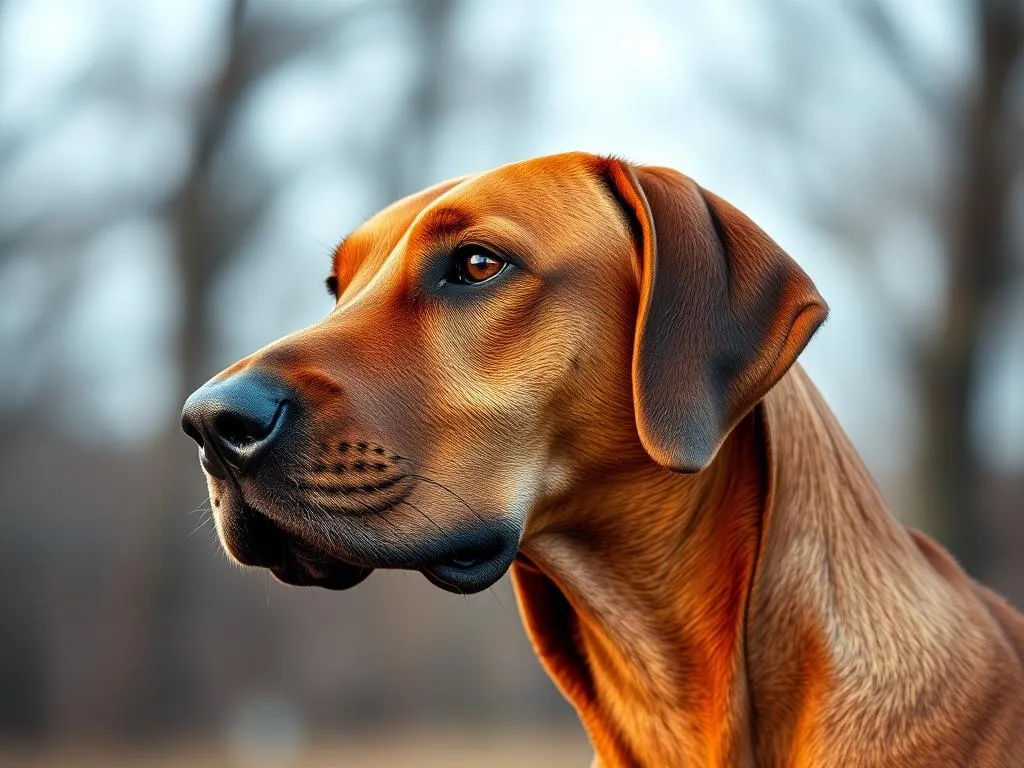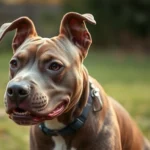
Introduction
Dog breeds play a significant role in our society, providing companionship, protection, and assistance in various tasks. Among these breeds, the Rhodesian Ridgeback stands out due to its unique history and characteristics. Originally bred in Africa for hunting lions, the Rhodesian Ridgeback is known for its loyalty, strength, and distinctive traits, making it a beloved choice for families and individuals alike.
Understanding Dog Breeds
What are Dog Breeds?
Dog breeds are distinct categories of dogs that share specific characteristics, such as appearance, behavior, and purpose. They are classified into various groups, including working, sporting, toy, hound, and more. Each breed has been developed over time to perform particular tasks or fulfill specific roles in human lives, from herding livestock to providing companionship.
Importance of Dog Breeds
The importance of dog breeds extends beyond their physical traits; they significantly influence behavior, health, and compatibility with families. Understanding the unique attributes of each breed helps potential owners make informed decisions about which dog fits their lifestyle. For instance, some breeds require more exercise and mental stimulation than others, while some are better suited for families with young children.
Overview of the Rhodesian Ridgeback
History and Origin
The Rhodesian Ridgeback has a rich history rooted in southern Africa. This breed was developed by the Khoikhoi people, who used them for hunting and guarding. The dogs were bred with various European breeds, including the Great Dane and the Bloodhound, to enhance their hunting capabilities. Remarkably, the Rhodesian Ridgeback was specifically known for its ability to track and corner lions, making it a valuable asset for local hunters.
Recognition by kennel clubs began in the early 20th century, with the breed standard firmly established, acknowledging its unique ridge of hair along the back that grows in the opposite direction to the rest of its coat. This distinctive feature is one of the defining characteristics of the Rhodesian Ridgeback.
Physical Characteristics
The Rhodesian Ridgeback is a medium to large-sized breed, typically weighing between 70 to 85 pounds (31 to 39 kg) and standing about 24 to 27 inches (61 to 69 cm) tall at the shoulder. Their coat is short, dense, and weather-resistant, coming primarily in a wheaten color with a white patch on the chest being acceptable. The most striking feature of the breed is the ridge along its back, a hallmark trait that sets it apart from other breeds.
Temperament and Behavior
Known for their loyalty, intelligence, and independence, Rhodesian Ridgebacks are excellent companions. They are generally good with children and can coexist well with other pets if socialized properly. However, their strong-willed nature means that they require consistent training and boundaries.
Common behavioral challenges include stubbornness and a tendency to chase small animals due to their hunting instincts. Early training and socialization are essential to help manage these behaviors and ensure a well-rounded dog.
Care and Maintenance
Feeding Requirements
Proper nutrition is vital for the health of a Rhodesian Ridgeback. A balanced diet that meets the nutritional needs of a large breed is essential. High-quality dog food that lists meat as the first ingredient is recommended. Feeding schedules should consist of two meals a day, with portion sizes adjusted based on the dog’s age, weight, and activity level.
Grooming Needs
The grooming needs of a Rhodesian Ridgeback are relatively low due to their short coat. Regular brushing, about once a week, helps remove loose hair and dirt. Bathing should be done as needed, typically every few months or when they become particularly dirty. Nail trimming is also essential to prevent overgrowth and discomfort.
Exercise and Training
Daily exercise is crucial for the physical and mental well-being of a Rhodesian Ridgeback. They thrive on activities like running, hiking, and playing fetch. A minimum of an hour of vigorous exercise each day is recommended to keep them healthy and happy.
Training should start early, focusing on basic commands and socialization. Positive reinforcement techniques work best, as this breed responds well to encouragement rather than harsh methods. Socialization with various people, pets, and environments is essential to develop a well-adjusted adult dog.
Health Considerations
Common Health Issues
Like all breeds, Rhodesian Ridgebacks are prone to certain health issues. Common concerns include hip dysplasia, skin conditions, and certain types of cancer. Regular veterinary check-ups can help identify these problems early, allowing for timely intervention.
Signs to watch for include limping, changes in appetite, or unusual behavior. Preventive measures, such as maintaining a healthy weight, regular exercise, and a balanced diet, can significantly reduce the risk of health issues.
Regular Veterinary Care
Routine veterinary care is crucial for maintaining the health of a Rhodesian Ridgeback. Regular check-ups, vaccinations, and health screenings for conditions prevalent in the breed are essential. Discussing any concerns with your veterinarian can ensure your dog receives proper care and attention.
Choosing a Rhodesian Ridgeback
Finding a Reputable Breeder
When looking to add a Rhodesian Ridgeback to your family, it is crucial to find a responsible breeder. A reputable breeder will prioritize health testing, socialization, and proper care of their puppies. Asking potential breeders about their breeding practices, health screenings, and the history of their dogs is essential. A good breeder should be willing to provide references and answer any questions you may have.
Adoption and Rescue
Adopting a Rhodesian Ridgeback from a shelter or rescue organization is another excellent option. Many dogs need loving homes, and adopting can be a rewarding experience. Rescue organizations often have mixed breeds that share the characteristics of the Rhodesian Ridgeback and can make wonderful companions.
Living with a Rhodesian Ridgeback
Suitability for Different Lifestyles
Rhodesian Ridgebacks are adaptable dogs, but they thrive in active households. They do best in homes with a yard where they can run and play. While they can live in apartments, it is crucial to ensure they receive ample exercise and mental stimulation. Families that enjoy outdoor activities and have the time to dedicate to their dog will find a perfect companion in the Rhodesian Ridgeback.
Training and Socialization
Effective training methods for a Rhodesian Ridgeback include positive reinforcement and consistency. Early socialization is vital to help them grow into well-rounded adults. Exposing them to various environments, people, and animals can reduce the likelihood of behavioral issues later in life. Group classes or sessions with a professional trainer can also be beneficial.
Conclusion
The Rhodesian Ridgeback is a remarkable breed known for its unique attributes, including loyalty, strength, and a rich history. Prospective owners should consider their lifestyle and commitment when deciding to bring a Rhodesian Ridgeback into their home. With the right care, training, and socialization, these dogs can bring immense joy and companionship to their families, proving to be not just pets but cherished family members.
The responsibility of owning a Rhodesian Ridgeback is significant, but the rewards of having such a loyal and loving companion are well worth the effort.









